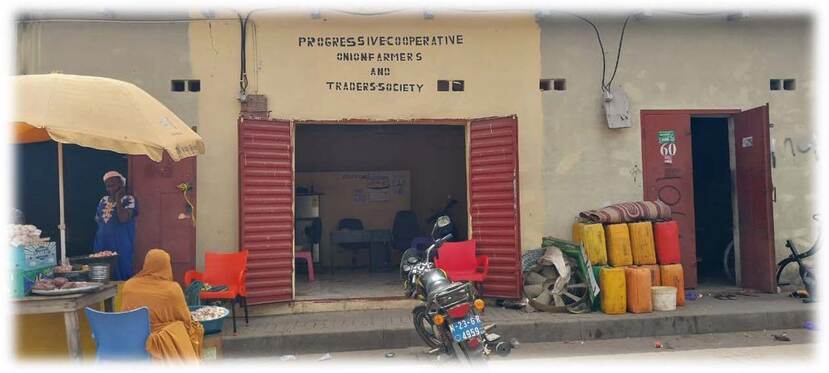Strengthening Farmer-Based Organizations in Ghana's Horti Sector
The horticulture sector plays a significant role in Ghana's agriculture, contributing to food security, employment, and income generation. The sector is essential for both domestic consumption and export, providing opportunities for smallholder farmers and commercial enterprises alike. Despite the important role of the sector, it faces significant challenges, including post-harvest losses due to inadequate storage and transportation infrastructure, limited access to finance for smallholder farmers, and the impact of climate change, which affects crop yields and quality.

Farmer organizations (FOs) which could play a transformative role in Ghana’s horticulture value chain by acting as a collective force that enhances the efficiency, profitability, and sustainability of smallholder farming, remain underdeveloped.
A recent study commissioned by the agricultural team at the Netherlands embassy in Ghana assessed 23 Farmer Organizations across the tomato, onion, and pepper value chains in the country, with the objective of identifying systemic weaknesses and opportunities for transformation of Farmer Organizations.
SWOT Analysis
From the study it was established that the level of farmer organizational development in the horticulture sector is very low, with even the existing farmer organizations being immature or very immature in organizations in terms of professionalism. Most farmer organizations were found not to have matured professionally, despite that some had been in existence or running for a while.
An analysis of the strengths, weaknesses, opportunities and threats identified that, although farmer organizations have strengths they can build on such as Community integration, Local Knowledge and Practices and the advantage of a Collective Bargaining Power, they are also hindered by the following identified limitations:
- Weak Governance and Leadership: Issues such as poor leadership, lack of transparency, and weak governance structures can lead to inefficiencies and internal conflicts, hindering organizational effectiveness.
- Lack of Unionized Organizations: existing FBOs are small, weak, and fragmented coupled with smallholder members who produce on a small scale, makes the FOs uncompetitive and unattractive to bigger agribusinesses and buyers.
- Lack of Business that serves members’ needs.
- Limited Access to Finance: Many organizations struggle with securing adequate and affordable financing, limiting their ability to invest in essential inputs, infrastructure, and technology for improved production due to poor financial management.
- Lack of Technical Skills: Many farmer organizations face a deficit in modern farming techniques, business management, and financial planning skills, which limits their productivity and long-term viability.
- Post-Harvest Losses: High levels of post-harvest losses due to inadequate storage, poor handling, and transportation challenges significantly reduce the profitability and sustainability of these organizations.

Recommendations for Growth
Highlighting recommendations based on some of the key challenges, the sector analysis from the study established that the challenges in the horticulture sector could be better addressed if the farmers in the sector, who are predominantly smallholders, join forces in farmer organizations to address challenges in the sector. The points below stood out as recommendations
- Governance Improvement: Strengthen leadership structures and transition FOs to cooperative business models.
- Capacity Building: Train farmers in modern agricultural practices, financial management, and leadership.
- Market Access: Establish direct links between FOs and buyers, and promote value-added processing.
- Finance Access: Develop partnerships with financial institutions to provide tailored credit and savings schemes.
- Digital Solutions: Adopt platforms for market intelligence, financial transactions, and communication.
By empowering FOs through these strategies, Ghana’s horticulture value chains can become more efficient, sustainable, and profitable. This transformation will not only improve farmer livelihoods but also strengthen the nation’s agricultural sector overall.
Read the full report to explore how collaboration and innovation can unlock the potential of Ghana’s smallholder farmers.
About Agriterra
Agriterra is an international, not-for-profit agri-agency that works in emerging and developing economies. It was founded by Dutch farmers’ organizations and cooperatives almost 25 years ago as an organization for international peer-to-peer agricultural cooperation. As an international specialist in cooperative development, Agriterra works to make cooperatives bankable and create real farmer-led businesses.
Contact
For more information about this sector or any other agricultural questions feel free to contact us via acc-lvvn@minbuza.nl and subscribe to our newsletter by sending us an email. For questions unrelated to agriculture in Ghana, check the Netherlands Embassy in Ghana website.